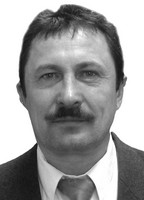Professional sports in Russia: challenges for modern government control model
Фотографии:
ˑ:
Teoriya i praktika fizicheskoy kultury №6 2017, pp.66-69
PhD, Associate Professor A.A. Opletin1
PhD, Associate Professor A.A. Urasova1
N.Y. Zubarev2
1Branch of St. Petersburg Institute of Foreign Economic Relations, Economics and Law in Perm, Perm
2Perm State National Research University, Perm
Presently national sports are viewed as a powerful tool to advance patriotism in the country and an excellent government control tool to secure due return on the governmental investments in form of competitive accomplishments and enthusiasm of national athletes. At this juncture the Russian government builds up an integrated professional sport system in the country albeit the initiative is largely hampered by the still underdeveloped legal and regulatory framework and the high dependence of the system on the governmental financial support. These problems may be viewed as barriers for the sustainable and independent professional sport system building initiatives in the Russian Federation. Our study was designed to outline a government control model for the professional sport and its resource development avenues. We applied a structure-and-functionality analysis to identify the key actors and their responsibilities to model their interactions within the proposed government control model for professional sports. The model specifies the key control instruments of the professional sport sector. Our analysis of the proposed model made it possible to highlight a few problems in the government control of the sector that need to be solved to help the national professional sport sector cope with the present crisis.
Keywords: professional sports, sport facility, children and youth sports, professional sport clubs.
References
- Bal'sevich V.K. Razvitie rossiyskoy sportivnoy nauki: problemy i puti resheniya [Development of Russian sport science: problems and ways of solution]. Teoriya i praktika fiz. kultury, 2012, no. 6, pp. 9–12.
- Guskov S.I. Perekhod k rynochnoy ekonomike i razvitie fizicheskoy kultury i sporta [Transition to market economy and development of physical culture and sports]. Teoriya i praktika fiz. kultury, 1991, no. 8, pp. 111-115.
- Zubarev N.Y. K voprosu o zakonodatelnom vnedrenii sistemy otsenki effektivnosti byudzhetnykh raskhodov [Concerning legislative implementation of rating system of efficiency of budget expenditures]. Mater. ochnoy i zaochnoy nauchno-prakticheskoy konferentsii "Aktualnye problemy gumanitarnykh, yuridicheskikh i ekonomicheskikh nauk v sovremennoy Rossii" [Proc. full-time and correspondence res.-pract. conf. "Actual problems of humanities, legal and economic sciences in modern Russia"]. 2010, part 1, pp. 101-104.
- Zubarev N.Y. Povedenie ekonomicheskikh faktorov v sotsioekonomicheskoy paradigme [Economic factors within socio-economic paradigm]. Sbornik materialov II magisterskoy konferentsii "Sovremennye problemy ekonomiki, upravleniya i finansov" [Proc. II master's conference "Current issues of economics, management and finance"]. Perm. 2012, pp. 66-75.
- Lubysheva L.I. Fizicheskaya i sportivnaya kultura: soderzhanie, vzaimosvyazi i dissotsiatsii [Physical and sports culture: content, interrelations and dissociations]. Teoriya i praktika fiz. kultury, 2002, no. 3, pp. 11–14.
- Lubysheva L.I. «Teoriya i praktika fizicheskoy kultury»: novye vektory razvitiya [«Teoriya i Praktika Fizicheskoy Kultury»: New Vectors of Development]. Teoriya i praktika fiz. kultury, 2010, no. 9, pp. 3–5.
- Opletin A.A. Potentsialnye vozmozhnosti fizicheskoy kultury kak odin iz vedushchikh stimulov samorazvitiya lichnosti [Potentialities of physical culture as one of key incentives for self-development]. Teoriya i praktika fiz. kultury, 2009, no. 5, pp. 25–30.
- Ofitsialny sayt Ministerstva fizicheskoy kultury, sporta i turizma Permskogo kraya [Official site of the Ministry of Physical Culture, Sports and Tourism of Perm territory]. Available at: http://sport2.permkrai.ru (Accessed: 25.09.2016)
- Prikaz Ministerstva sporta RF ot 08.05.2009 # 290 «Ob utverzhdenii Obshchikh trebovaniy k soderzhaniyu polozheniy (reglamentov) o mezhregionalnykh i vserossiyskikh ofitsialnykh fizkulturnykh meropriyatiyakh i sportivnykh sorevnovaniyakh» [Order of the RF Ministry of Sport 08.05.2009 № 290 "On approval of General requirements for regulations on interregional and national official sports events"]. Available at: http://www.consultant.ru (Accessed: 01.09.2016).
- Urasova A.A. Sotsialnye aspekty upravleniya: otvetstvennost i effektivnost [Social aspects of management: responsibilities and efficiency]. Obshchestvo: politika, ekonomika, pravo, no. 4, 2012, pp. 103-108.
- Federalny zakon ot 22.11.2016 #396-FZ O vnesenii izmeneniy v Federalny zakon «O fizicheskoy kulture i sporte v Rossiyskoy Federatsii» v chasti regulirovaniya sporta vysshikh dostizheniy i professionalnogo sporta [Federal Law 22.11.2016 No. 396-FL On Amendments to the Federal Law "On Physical Culture and Sport in the Russian Federation" regarding regulations in elite sports and professional sports].
- Federalny zakon ot 22.11.2016 #392-FZ «O vnesenii izmeneniy v Ugolovny kodeks Rossiyskoy Federatsii i Ugolovno-protsessualny kodeks Rossiyskoy Federatsii (v chasti usileniya otvetstvennosti za narushenie antidopingovykh pravil) [Federal Law 22.11.2016 No. 392-FL "On Amendments to the RF Criminal Code and the RF Code of Criminal Procedure (in terms of enhancing liability for violation of anti-doping rules)].
- Federalny zakon ot 4 dekabrya 2007 g. # 329-FZ O fizicheskoy kulture i sporte v Rossiyskoy Federatsii (v red. ot 03.12.2012 # 237-FZ) [Federal Law December 4, 2007 No. 329-FL On Physical Culture and Sports in the Russian Federation (as amended on 03.12.2012 No. 237-FZ).]. Available at: http://www.consultant.ru (Accessed: 30.09.2016).



 Журнал "THEORY AND PRACTICE
Журнал "THEORY AND PRACTICE